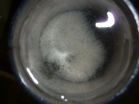(Press-News.org) (Philadelphia, PA) – When a person has a heart attack, portions of the heart muscle die in the next several days or even weeks if deprived of oxygen for long enough. The recovering heart slowly remodels itself, even fostering the growth of new blood vessels, in an attempt to regain some of its former function. But all too often, the remodeling is actually harmful, and the damaged heart is on an inevitable downward slide to heart failure.
Now, scientists at the Center for Translational Medicine at Temple University School of Medicine have identified a key target they hope will help stave off the potentially harmful effects of remodeling. They have shown that by turning off the activity of a protein, GSK-3α, in the heart cells of mice that have had a heart attack, they can prevent heart remodeling, preserve heart function and significantly improve survival.
Their findings offer new insights into processes underlying remodeling, and perhaps to eventual strategies against heart failure. They reported their results November 5, 2012, at the Late-Breaking Basic Science Oral Session at the American Heart Association's Scientific Sessions 2012 in Los Angeles.
"We need to find ways to prevent and slow down remodeling of the heart after a heart attack – that's the Holy Grail of heart failure," said senior author Thomas Force, MD, Professor of Medicine and Clinical Director of Temple's Center for Translational Medicine. "Our findings are important steps in understanding some of the mechanisms at play in remodeling, and hold promise to eventually lead to new interventions and perhaps even help prevent heart failure."
Focusing on GSK-3α
The protein enzyme GSK3 – glycogen synthase kinase 3 – plays a key part in many cellular processes and diseases. It has two forms, GSK-3α and GSK-3β, both of which have particularly important roles in heart disease. While the exact role of GSK-3α in heart cells has been unclear, studies indicate that it is important in regulating the heart's growth, ability to contract, and its expansion in size associated with heart disease and heart failure.
To find out the role of GSK-3α specifically in heart cells, Dr. Force, first author Firdos Ahmad, PhD, a postdoctoral fellow in the Department of Pharmacology and the Center for Translational Medicine and their co-workers compared mice with normal levels of the protein in their heart cells to mice with heart cells lacking a working GSK-3α. All of the mice in both groups experienced the equivalent of a heart attack. The researchers found that the mice missing the protein in their heart cells had significantly better survival (100 percent) over the next several days or week compared to the normal mice (75 percent survival).
After two weeks, they found that both groups had comparable increases in heart chamber size and accompanying reductions in the heart's left ventricle's ability to pump blood effectively. Yet, at four weeks after a heart attack, the two groups began to separate, with the mice without GSK-3α in their heart cells showing significantly better preserved heart function. By that time, however, the left ventricle in the non-GSK-3α mice showed a much greater reduction in size than was seen in the hearts of the mice with the GSK-3α protein. As a result, the hearts of the mice without GSK-3α showed greater pumping ability.
Eight weeks after experiencing a heart attack, 92 percent of the mice lacking GSK-3α were still alive compared to only 71 percent of the normal mice.
"During remodeling, the heart's ventricles dilate and the ventricle function deteriorates," explained Dr. Force. "Remodeling after a heart attack is the major cause of heart failure in the United States. We'd like to prevent this by finding something to modulate the process."
Surprising Results
The researchers were surprised by the results, since earlier studies have found the opposite – that is, heart attack-induced mice that lack the GSK-3α protein in all of the body's cells have an increased rate of mortality, along with a less effectively functioning heart.
"These results are very unexpected," Dr. Force said. "We think that since turning off GSK-3α activity in all of the cells causes so many cardiac problems, there must be other processes at work there that are causing these differences from what we see when the protein's activity is halted in only heart cells. We'd like to find the mechanisms involved in this."
"The results also suggest that inhibiting both GSK forms might be a way of controlling post-heart attack remodeling and retain heart function," Dr. Ahmad noted, pointing to earlier research showing that inhibiting GSK-3β was also beneficial.
###Other researchers contributing to this work include Hind Lal, Ronald Vagnozzi, Jibin Zhou, and Erhe Gao, Temple University School of Medicine, and James R. Woodgett, University of Toronto.
The work was supported by the National Institutes of Health.
Losing protein helps heart recover, say Temple scientists
2012-11-06
ELSE PRESS RELEASES FROM THIS DATE:
Taiho Pharmaceutical unveils data on 8 novel anticancer compounds
2012-11-06
DUBLIN, November 6, 2012 – Taiho Pharmaceutical Co., Ltd. (HQ: Tokyo, President: Masayuki Kobayashi), the developer of the first orally available fluorouracil (FU) Chemotherapeutic treatment (TS-1/S-1), is presenting early stage data for eight novel oncology compounds, including potential first-in-class therapies. The data being presented during the 24th EORTC-NCI-AACR Symposium on Molecular Targets and Cancer Therapeutics from November 6 – 9, 2012 in Dublin, Ireland underscore Taiho's steadfast commitment to improving cornerstone anti-metabolic cancer agents and developing ...
Rebuilding a whole heart for children born with only half of 1
2012-11-06
Boston, Mass.—Using a combination of surgical procedures developed over the last 11 years, surgeons at Boston Children's Hospital have established a new approach for rebuilding the heart in children born with a severe heart defect called hypoplastic left heart syndrome (HLHS). This "staged left ventricle recruitment" (SLVR) strategy uses the existing standard single-ventricle treatment for HLHS and additional procedures to spur the body's capacity for healing and growth and encourage the small left ventricle in these children to grow and function.
Members of Boston Children's ...
How bacteria talk to each other and our cells
2012-11-06
Bacteria can talk to each other via molecules they themselves produce. The phenomenon is called quorum sensing, and is important when an infection propagates. Now, researchers at Linköping University in Sweden are showing how bacteria control processes in human cells the same way.
The results are being published in the journal PLOS Pathogens with Elena Vikström, researcher in Medical Microbiology, as the main author.
When an infection is signaled, more and more bacteria gather at the site of the attack – a wound, for example. When there are enough of them, they start ...
Combating a crisis: Global burden of preterm birth can be reduced if critical actions are taken
2012-11-06
New surveys of researchers and funders reveal a lack of consensus regarding researching and developing interventions to prevent prematurity and stillbirth, according to an article published in the American Journal of Obstetrics and Gynecology ahead of World Prematurity Day on November 17.
Authored by Michael G. Gravett, MD, scientific director of the Global Alliance to Prevent Prematurity and Stillbirth (GAPPS), an initiative of Seattle Children's, and Craig E. Rubens, MD, PhD, executive director of GAPPS, the article outlines significant opportunities to enhance research ...
New bacteria to fight against intestinal inflammation
2012-11-06
This protection is provided by a human protein, Elafin, which is artificially introduced into dairy produce bacteria (Lactococcus lactis and Lactobacillus casei). In time, this discovery could be useful for individuals suffering from chronic inflammatory diseases such as Crohn's disease or ulcerative colitis.
The results of this research were published in the Science Translational Medicine review on 31 October 2012.
In France, nearly 200,000 individuals suffer from chronic inflammatory bowel disease, known as IBD, (specifically Crohn's disease and ulcerative colitis). ...
Supercomputing for a superproblem: A computational journey into pure mathematics
2012-11-06
A world-famous mathematician responsible for solving one of the subject's most challenging problems has published his latest work as a University of Leicester research report.
This follows the visit that famed mathematician Yuri Matiyasevich made to the Department of Mathematics where he talked about his pioneering work. He visited UK by invitation of the Isaac Newton Institute for Mathematical Sciences.
In 1900, twenty-three unsolved mathematical problems, known as Hilbert's Problems, were compiled as a definitive list by mathematician David Hilbert.
A century later, ...
New strategy for fingerprint visualization developed at Hebrew University
2012-11-06
Jerusalem, Nov. 6, 2012 -- Identifying fingerprints on paper is a commonly used method in police forensic work, but unfortunately it is not easy to make those fingerprints visible. Now, scientists at the Hebrew University of Jerusalem have developed a new approach for making such fingerprints more readily readable.
The new method, created by a team headed by Prof. Yossi Almog and Prof. Daniel Mandler of the Institute of Chemistry at the Hebrew University, uses an innovative chemical process to produce a negative of the fingerprint image rather than the positive image ...
Strange diet for methane consuming microorganisms
2012-11-06
This press release is available in German.
Methane is formed under the absence of oxygen by natural biological and physical processes, e.g. in the sea floor. It is a much more powerful greenhouse gas than carbon dioxide. Thanks to the activity of microorganisms this gas is inactivated before it reaches the atmosphere and unfolds its harmful effects on Earth's climate. Researchers from Bremen have now proven that these microorganisms are quite picky about their diet.
All life on Earth is based on carbon and its compounds. Cell components of all creatures contain carbon. ...
Early treatment sparks striking brain changes in autism
2012-11-06
When given early treatment, children with autism spectrum disorders (ASD) made significant improvements in behavior, communication, and most strikingly, brain function, Yale School of Medicine researchers report in a new study.
The study was published in the current issue of the Journal of Autism and Developmental Disorders by Yale Child Study Center researchers Fred Volkmar, M.D., Kevin A. Pelphrey, and their colleagues.
The results suggest that brain systems supporting social perception respond well to an early intervention behavioral program called pivotal response ...
HF patients treated by a cardiologist, rather than hospitalist, have fewer readmissions
2012-11-06
MINNEAPOLIS, MN – November 6, 2012 – When a cardiologist attends to heart failure patients, even when the severity of illness is higher, patients have reduced rates of hospital readmissions, compared with those patients who are treated by a hospitalist, according to a trial being presented today at the American Heart Association's scientific sessions in Los Angeles.
Congestive heart failure (CHF) is the most common cause for hospital readmission in patients over the age of 65 years. Whereas efforts to reduce readmission rates have focused on transitions of care and short-term ...

